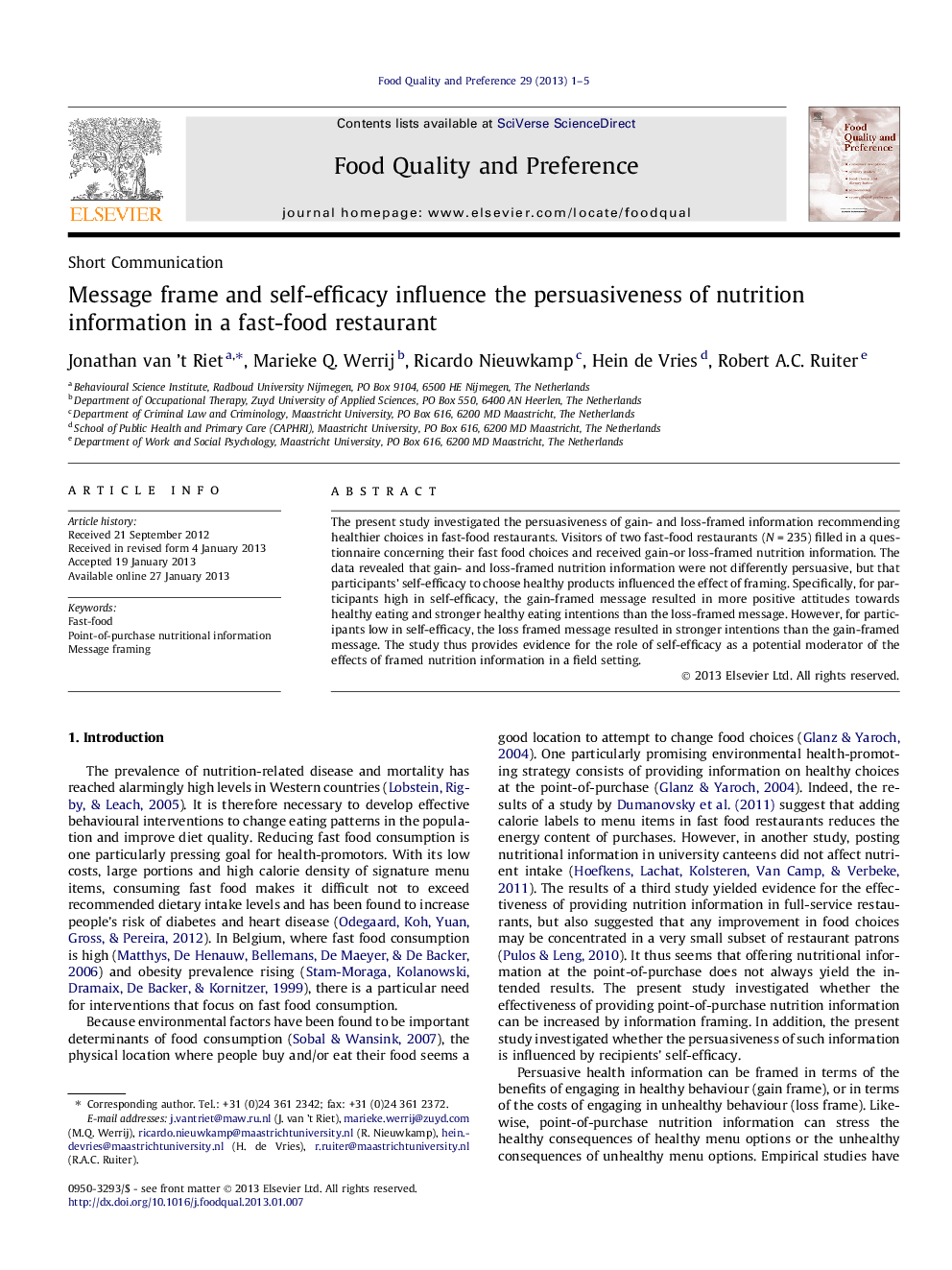| Article ID | Journal | Published Year | Pages | File Type |
|---|---|---|---|---|
| 4317333 | Food Quality and Preference | 2013 | 5 Pages |
The present study investigated the persuasiveness of gain- and loss-framed information recommending healthier choices in fast-food restaurants. Visitors of two fast-food restaurants (N = 235) filled in a questionnaire concerning their fast food choices and received gain-or loss-framed nutrition information. The data revealed that gain- and loss-framed nutrition information were not differently persuasive, but that participants’ self-efficacy to choose healthy products influenced the effect of framing. Specifically, for participants high in self-efficacy, the gain-framed message resulted in more positive attitudes towards healthy eating and stronger healthy eating intentions than the loss-framed message. However, for participants low in self-efficacy, the loss framed message resulted in stronger intentions than the gain-framed message. The study thus provides evidence for the role of self-efficacy as a potential moderator of the effects of framed nutrition information in a field setting.
► Gain- and loss-framed messages about fast-food were equally persuasive. ► Self-efficacy to choose healthy products influenced the effect of message framing. ► Gain-framed information was especially persuasive when self-efficacy was high.
